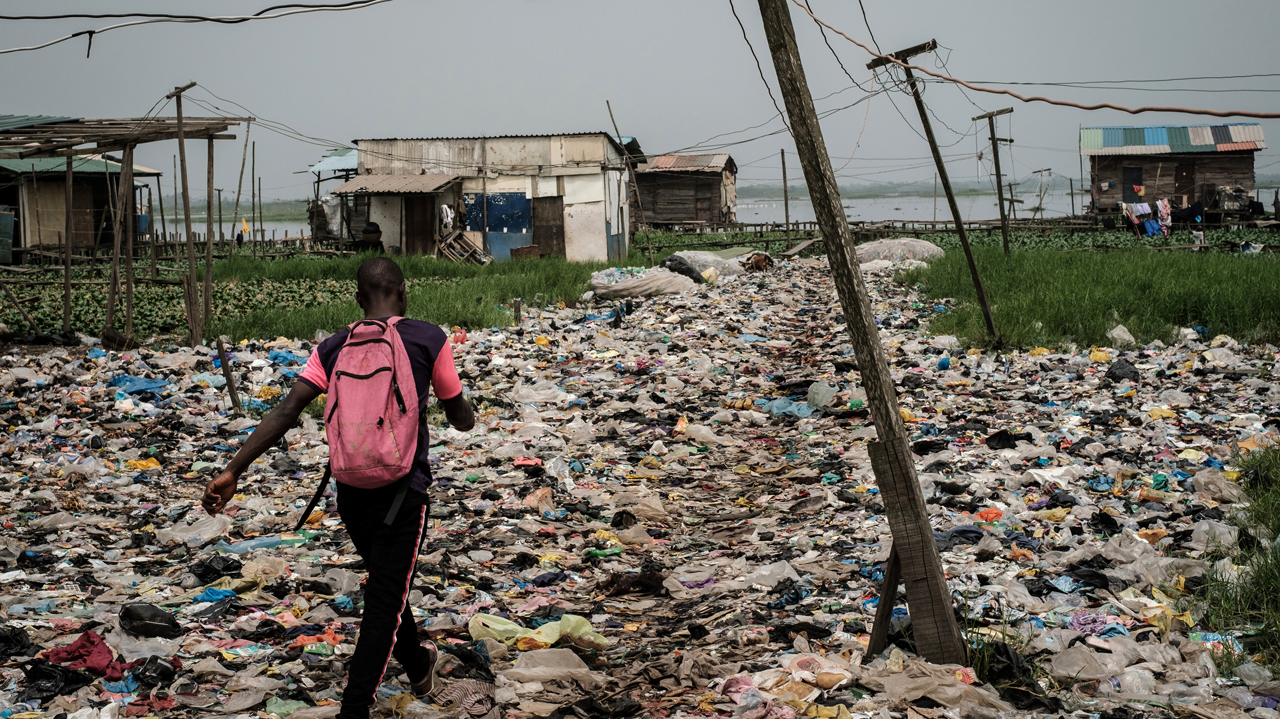‘We Are Human Beings, Not Numbers’, Evictee Says
Amore Akintunde, a Junior Secondary School 3 Student of Okesuna Junior Secondary School, Lagos Island left home on the first day that demolition started in Otumara in March 2025 with excitement. While in school, she never knew what had befallen her and her elder sister staying with their grandmother as orphans. But she returned home to see that the house she left in the morning had become rubbles.
And since then, she, her elder sister who just completed secondary school education and her grandmother have been living in the open and recently in a makeshift structure put together with disused planks and roofing sheets.
According to her, she did not return to school the next day the demolition started in her community because it was a tough defining moment for her and her grandmother who works as a cleaner in one of the local councils in Lagos Island. She claimed she managed to complete her JSS 3 but she has dropped out of school although she hopes to return to school in January.
Amori is one of the many pupils and students that are now out-of-school aside being homeless as a result of the demolition of Otumara and Ilaje, Lagos Mainland Local council. In demolishing the structures in the community, even the government owned schools were not spared.
It is not only children that have negative stories to tell. Alhaji Abdulafeez Olonisakin Adebayo lived in the Otumara-Ilaje community for more than 50 years and it is where he grew up with his late father and mother. Adebayo insisted that the eviction amounted to erasure of his home and identity.
He added: “We are human beings, not merely numbers on a list. Our homes are more than just buildings, they are the foundation of our lives, our families and generations. We have lived here, built our lives here, and contributed to this city. Now, with a single act, you seek to erase everything we have ever known. Where do you expect us to go.”
But seven months on, when The Guardian visited the demolished site, those who once owned homes now couch-surf or sleep under open skies, their hopes scattered in the ruins of what once was. Some children were sited playing around the community, many of them claimed since the demolition, they have stopped going to school as the schools they attended, public and private, within the community had been demolished.
It would be recalled that on March 7, 2025, when the demolition started, evictees said bulldozers, armed personnel and men wielding machetes converged on the community, tearing down homes, workshops, market stalls and places of worship.
While some residents fled, others scramble to salvage what they could from collapsing buildings. Hours later, heaps of personal belongings, clothes, pots, mattresses, were left on the roadside with many battling with hoodlums and thieves stealing their personal belongings.
The next days and weeks revealed the depth of the human cost: livelihoods destroyed, generations of settlement erased, and a community reduced to displacement and despair.
According to Pastor Jude Ojo, one of the community leaders, the demolition took place with little or no warning which left residents feeling abandoned. “It is very sad that after seven months of sudden and unprecedented illegal demolition of our community and houses, government is playing hide-and-seek game with us.”
Afolabi Esther Abiola, a landlady and school-owner in the community, with seven tenants and multiple apartments, now squat with her mother in Magbon area of Badagry. “I feed on family and friends. I have a daughter in university which I don’t want her to drop out. Things are hard and very tough.”
On his part, Alfa Ajibade, a landlord whose house at 34 Church Street, Ilaje, was destroyed, said: “It was like heavens were fallen. We were still in the month of Ramadan, police, teargas, guns, touts. It was war.” His household has been forced to scatter, his livelihood as an imam and Arabic tutor wiped out, and his family now lives in separate locations. “My first wife is managing with her senior sister, who gave us a room to squat with the children. My second wife is at Ogonlo, Ikorodu. Life is now terrible to live.”
Collins Okereke said their building that was demolished was where he and his siblings were born. He claimed his mother passed away as a result of the demolition because she could not cope with the pressure of being displaced. “My mother’s corpse is in the mortuary. I stay in Orile now with my immediate family, and my siblings are scattered all over the place.”
Alimaje Joseph has been living in Otumara since 1984. “When my husband died, we were living in barracks, so when I collected my pension, I used it to build two houses there for my children because I had no one to support me. At that time, my kids were still small and couldn’t help. I am now homeless, staying on the roadside.”
Bright John, a groundnut seller, gave birth to a boy on March 7, the day the demolition started and since then John said living has been horrible with her new born baby. Like many members of the community who are still living in makeshift structures within Otumara, when it rains at night she uses nylon to cover herself and baby. According to her, she was discharged from the hospital two days after delivery, stayed with a woman who pitied her for two months before she constructed a makeshift house that she cannot standup while inside.






